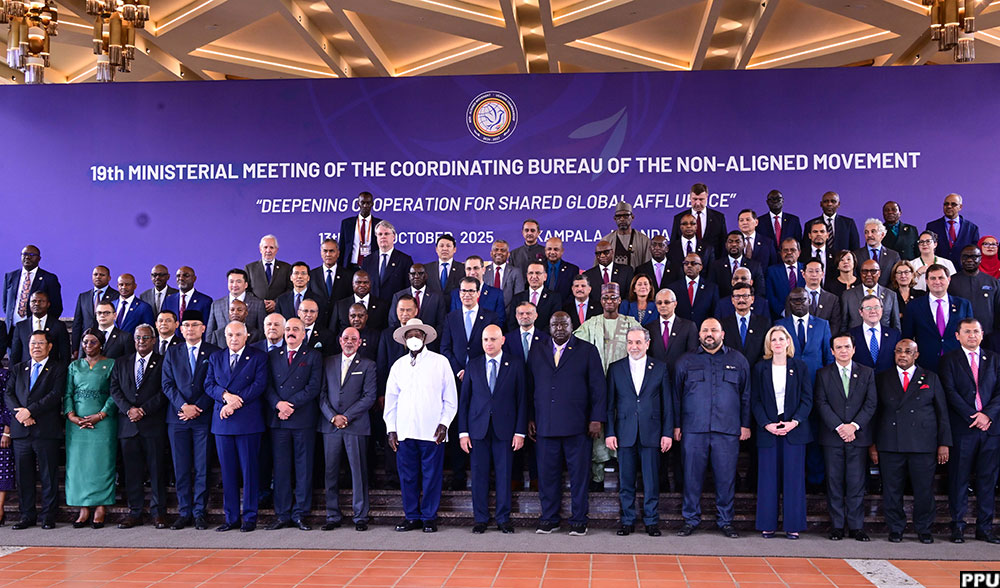At NAM ministerial meeting, Museveni urges global harmony, prosperity
President Museveni urges NAM countries to promote industrialization, science, and human resource development to achieve equitable global affluence.
The 19th Ministerial Meeting of the Coordinating Bureau of the Non-Aligned Movement (NAM) is taking place in Kampala. (Credit: PPU)
___________________________
NON-ALIGNED MOVEMENT
President Yoweri Kaguta Museveni has urged the world to focus on mutually beneficial co-operation and shared prosperity rather than domination and ideological conflict.
He said this on Wednesday (October 15) while chairing the 19th Ministerial Meeting of the Coordinating Bureau of the Non-Aligned Movement (NAM) held at Speke Resort Munyonyo in Kampala under the theme: 'Deepening Co-operation for Shared Global Affluence'.
The meeting, which got under way on Monday (October 13), closes today (Thursday) in Uganda's capital.
It has brought together ministers of foreign affairs from NAM’s 121 member states, alongside representatives from the United Nations, African Union, and other multilateral institutions. The conference serves as the midterm review meeting following Uganda’s successful hosting of the 19th NAM Summit in January 2024.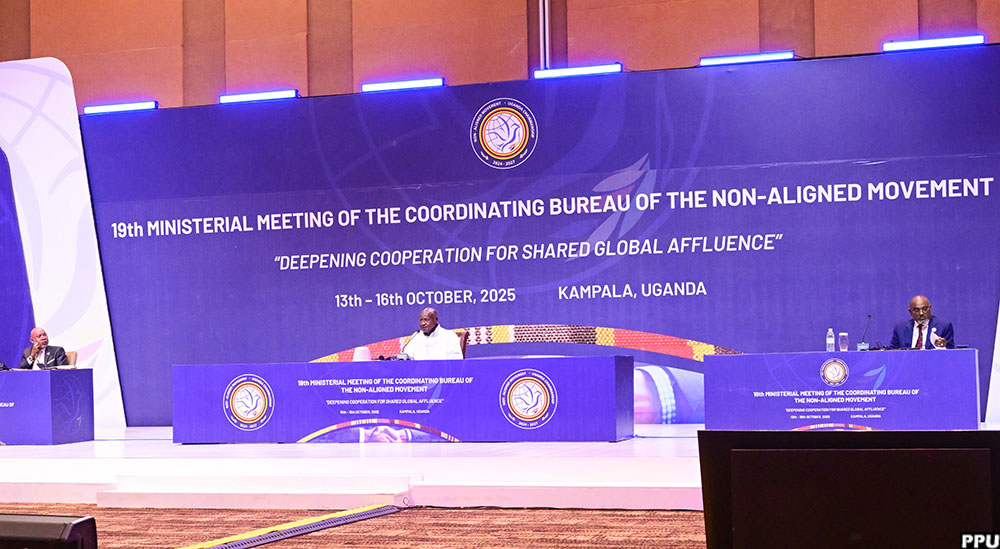
President Museveni is the current chairman of NAM. He hailed the foresight of the movement’s founding leaders, saying their decision to pursue neutrality during the Cold War established a vital principle for global peace and co-operation.
“I salute the Non-Aligned Movement. Our elders who started it did us a great service because they achieved neutrality. At that time, there was a conflict between the socialist camp and the capitalist camp, and our elders said, ‘No, we want to be neutral. We want to judge issues on merit.’ That helped us then, and it is even more important today.”
Museveni warned that the ambitions of hegemonism, where some powers attempt to control the world, are outdated and counterproductive. “Anybody who thinks they should control the world is wasting their time."
He added: “My advice to people in the world is that we concentrate on minimum mutually beneficial interests: trade, investments, tourism, and mutual support in any other area. Where we don’t agree, let us act by good example and not coercion. If you think you are right, show it by doing things properly in your own country so that others learn from you."
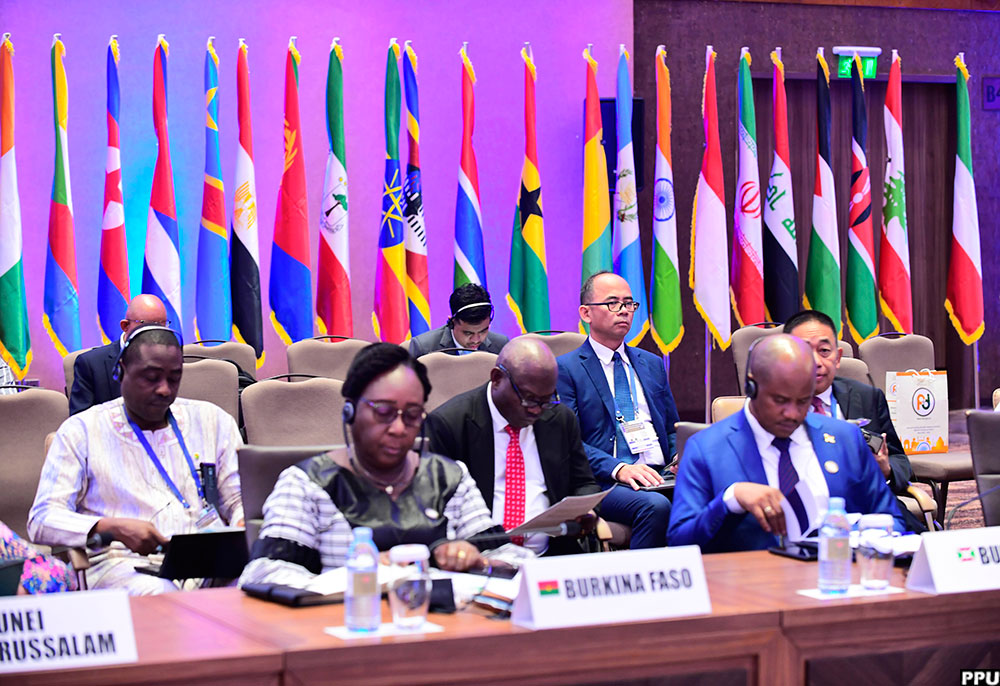
Quoting the scripture, the Ugandan statesman said: “Let your light so shine before men that they may see your good deeds and praise your Father who is in heaven”. He said positive examples, not force, should guide relations among nations.
He recalled the Thirty Years’ War in Europe, triggered by religious intolerance during the Middle Ages, and the fall of the Austro-Hungarian Empire after failed attempts to suppress emerging social systems.
“When one of the kings of England wanted to become Protestant, the Pope refused to allow anyone to change from Catholicism, and that caused a lot of chaos. In the end, the Pope failed.
“When capitalism emerged in France after the revolution, Metternich of Austria-Hungary tried to stop it but failed. Where is Austria-Hungary today? It disappeared because it wanted to stop the evolution of history, which is impossible."
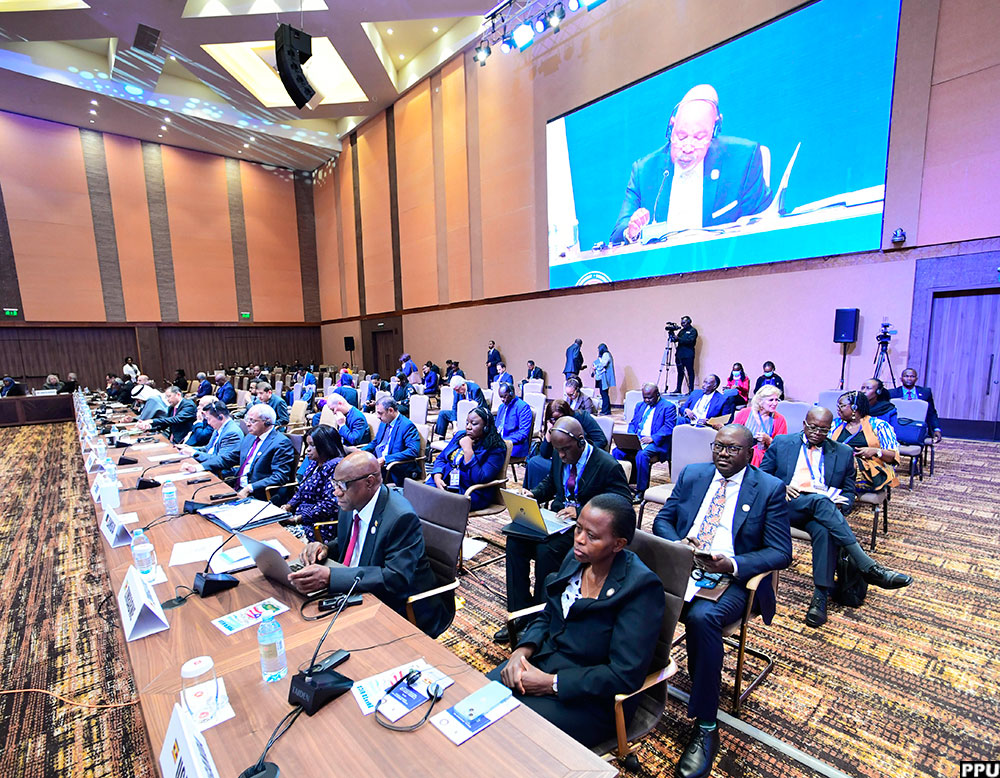
According to Museveni, each nation should be free to determine its own social and political systems. He used examples from global industrial history to underscore how advancements in science and technology benefit all humanity rather than a select few.
“Once there is an advance in the control of nature through science, we should be very happy, and there should be no conflict. I don't see why anybody would worry that country X and B, and C have come out of poverty and are more prosperous. After all, if you want to do business, why do you want to do business with a poor man, a poor partner? How much will he buy from you? Why don't we want all our partners to be prosperous so that you can do better business?”
He cited the example of China’s transformation, which he said indirectly benefited Uganda and other developing nations by making technology and materials such as steel more affordable.
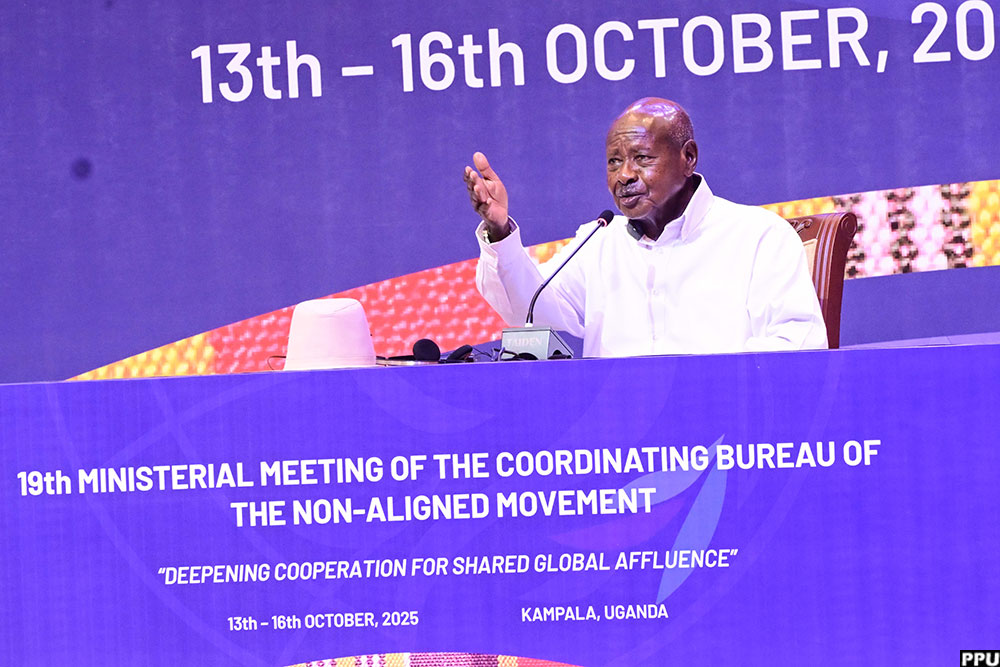
'Hope of the world'
On Africa’s economic situation, the Ugandan president reiterated his long-standing argument that global prosperity depends on raising purchasing power in all regions.
“If Africa’s GDP per capita was 20,000 US dollars, we would have a total GDP of about 30 trillion US dollars. At 25,000 US dollars, it would reach 45 trillion US dollars. That would not only make Africa richer, but would also benefit our trading partners because we would buy more from them."
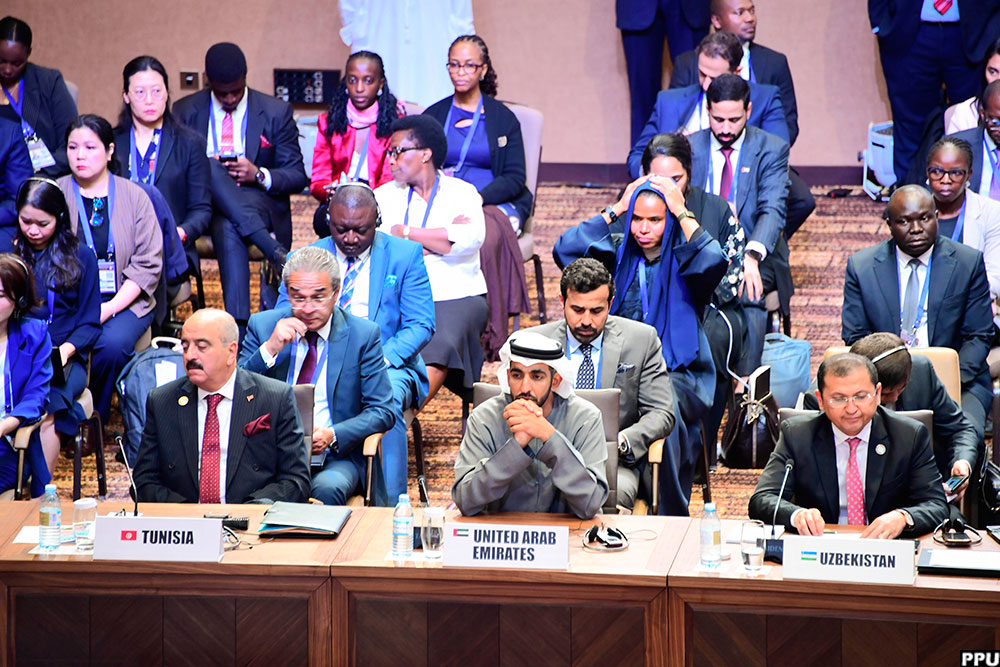
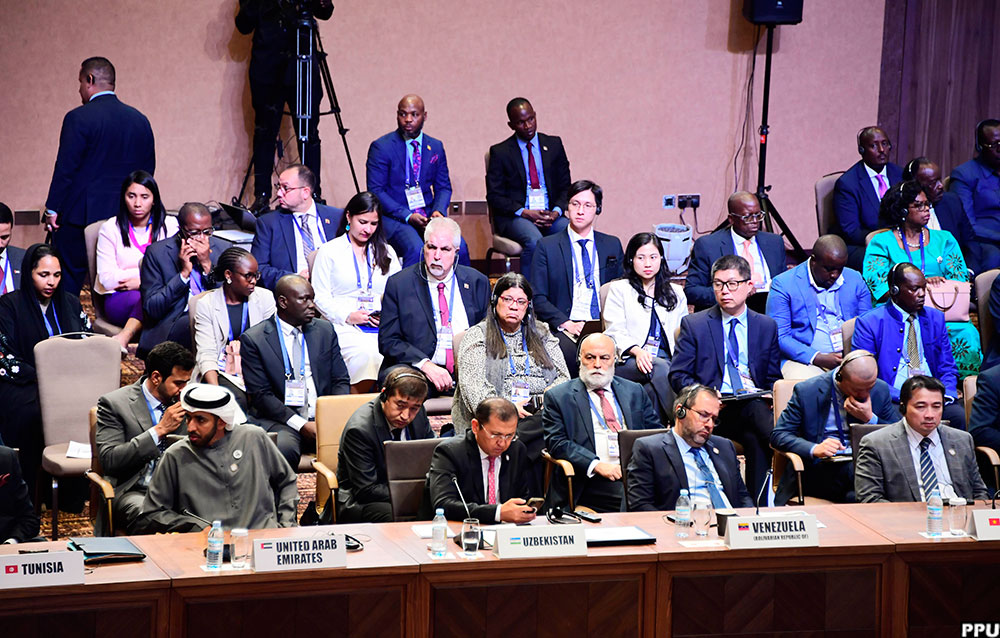
Museveni urged NAM countries to promote industrialization, science, and human resource development to achieve equitable global affluence. He also expressed gratitude to NAM member states for entrusting Uganda with the chairmanship.
“We are very happy that you have come to Uganda in such big numbers. I thank you for honouring us with the chairmanship of the Non-Aligned Movement. When I look around and see all of us together, I believe we may be the hope of the world,” he said.
He emphasized that the movement’s unity, grounded in equality and mutual respect, can serve as a foundation for a fairer world order.
The meeting also heard from representatives of the United Nations and the African Union, who commended Uganda for its active leadership of NAM and reaffirmed the relevance of the movement in the current multipolar world.
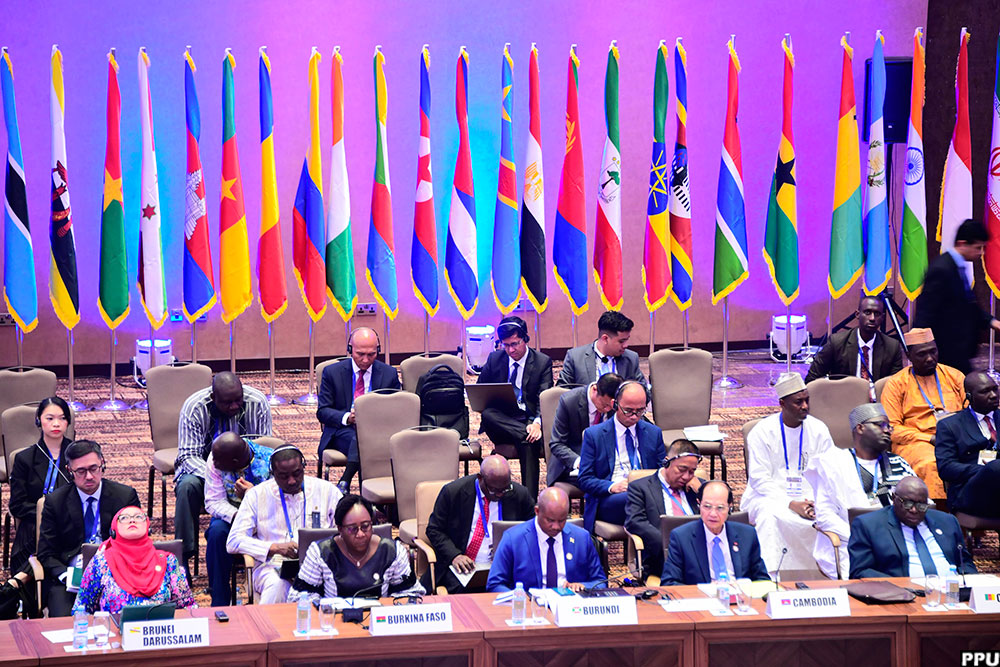
The representative of the UN secretary-general António Guterres congratulated Uganda for its successful stewardship of the movement. He praised NAM’s role in promoting dialogue, diplomacy, and South-South cooperation.
Amb. Musa Mohamed Omar, representing African Union Commission chairperson Mahamoud Ali Youssouf, also lauded Uganda’s leadership and NAM’s enduring vision.
He said countries benefiting from the current world order were defending an unfair status quo and urged the Global South to stand united in reforming global governance.
“Those who benefit from the current world order are defending the status quo. But if we put our efforts in common and align our vision with other frameworks such as the G77 plus China, we will be able to influence the construction of a new, fairer world order,” said Omar.
He emphasized that the AU remains steadfast in supporting countries affected by coercive unilateral measures, calling them obstacles to peace and development.
The January 2024 NAM Summit in Kampala, attended by over 120 member states and observers, was widely hailed as a diplomatic success that reaffirmed the movement’s role as a bridge between the Global North and South.
This week’s midterm review meeting is expected to build on those outcomes, with discussions centred on peacebuilding, technology transfer, trade facilitation, and climate resilience.
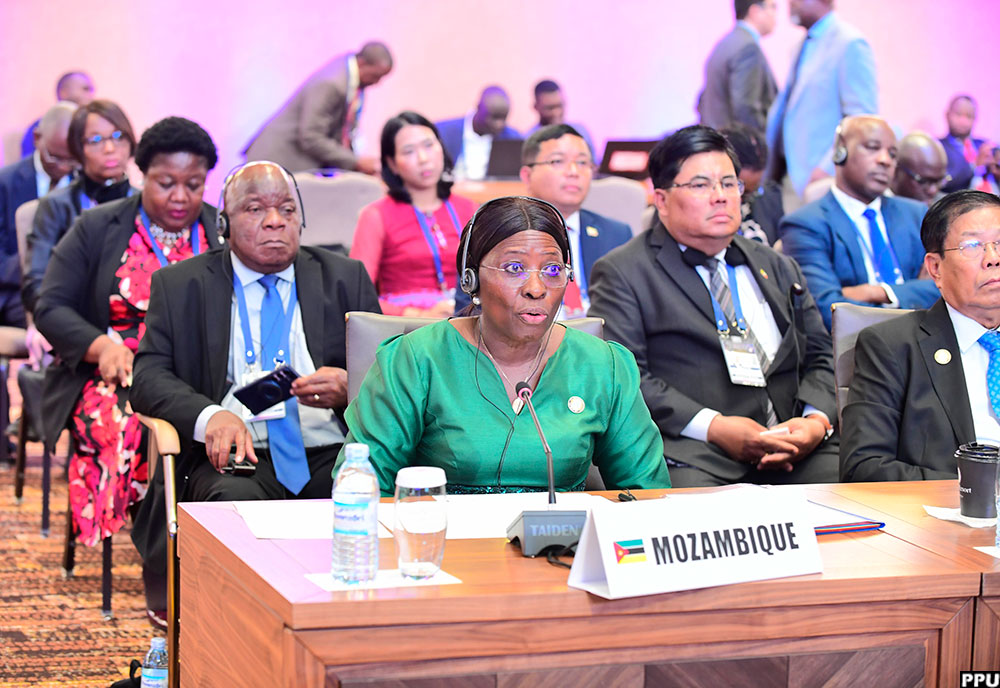
NAM was founded in 1961 in Belgrade by leaders including Jawaharlal Nehru (India), Josip Broz Tito (Yugoslavia), Gamal Abdel Nasser (Egypt), Sukarno (Indonesia), and Kwame Nkrumah (Ghana). Its objective was to maintain independence from the power blocs of the Cold War while promoting peace, sovereignty, and cooperation among developing nations.
Today, NAM remains the second-largest grouping of countries after the UN, representing over 55% of the global population and two-thirds of UN member states.
